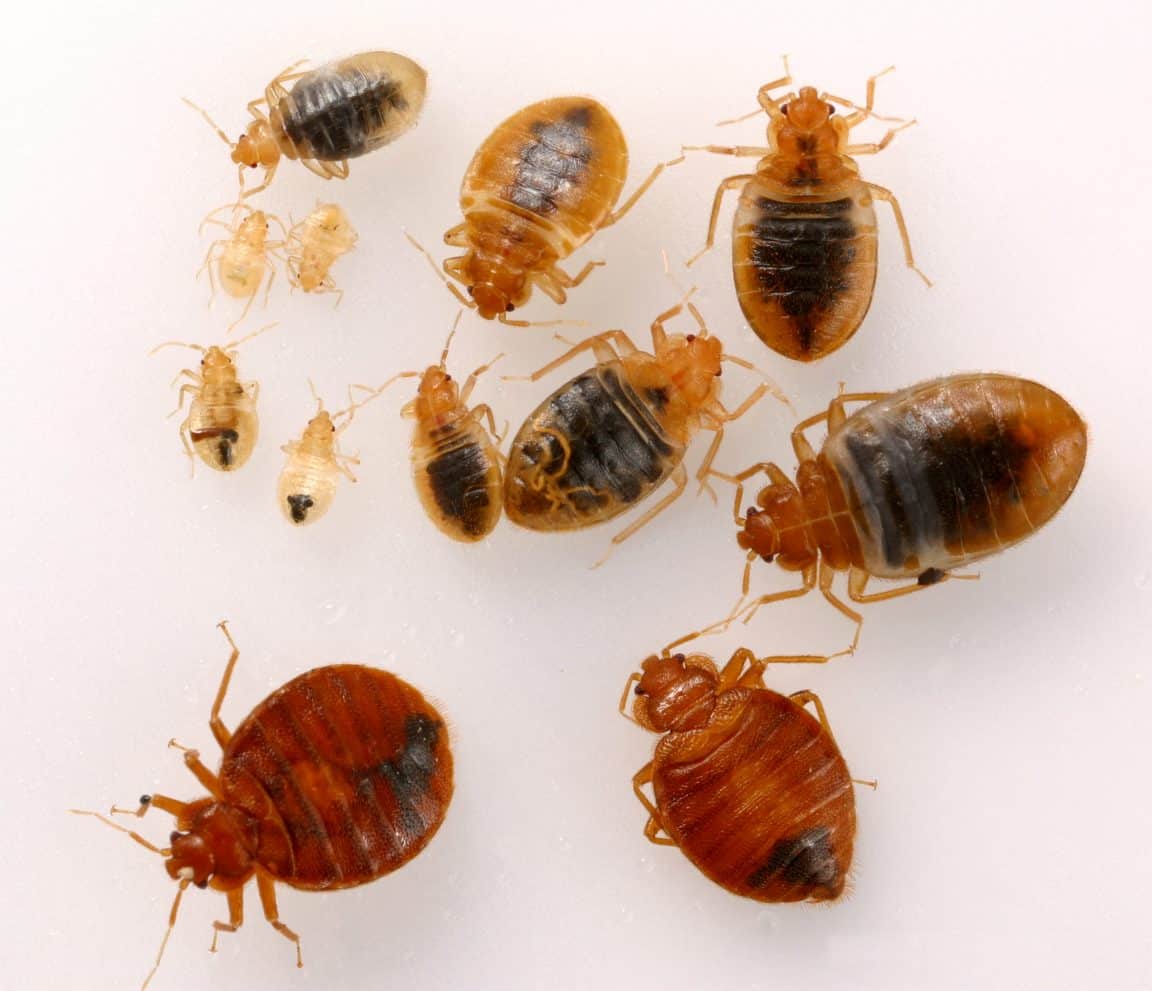Bed bugs are one of the most difficult pests to deal with in your home, and they get into your clothing and bedding and can move from household to household. Because of the personal nature of a bed bug infestation, many people wonder whether they can cause illness.
It’s no surprise that people often associate pests with sickness. Common pests like fleas, rats, and mosquitoes have all contributed to outbreaks of illnesses worldwide. The bubonic plague and malaria, for example, have both wiped out entire groups of people throughout the globe.
To help you understand bed bugs and illness, in this article, you’ll learn:
- If Bed Bugs Can Make You Sick
- What Bed Bugs Are
- Signs and Symptoms That Indicate You Have a Bed Bug Infestation
Can Bed Bugs Make You Sick?
Bed bugs are, unfortunately, very common in the United States. They can infest homes and can even be brought from place to place on clothing and bedding. This makes them very difficult to get rid of and allows them to spread widely throughout communities. Because they’re so common and bed bugs feed on a blood meal, many people wonder if they can cause health issues.
Physical Illness
Thankfully, bed bugs generally do not spread any known diseases to humans. This is one of the differences between bed bugs and ticks. For the most part, they’re unlikely to make someone physically ill. However, it’s possible that someone could suffer a more severe allergic reaction to a bed bug bite, although this is very rare.
When bed bugs bite, they inject anticoagulant saliva into your blood, which prevents clotting. This causes an inflammatory reaction in most people similar to what we experience when bitten by mosquitoes. It’s possible to have a more extreme reaction or anaphylaxis to this anticoagulant, which can cause hives, a rash, and trouble breathing. If you experience these symptoms, you must seek medical attention.
Psychological Illness
Perhaps the most harmful effects caused by a bed bug infestation are psychological. Knowing that bed bugs are in your home and using your blood as food can be incredibly distressing. There have been instances of people having psychological breakdowns after they discover a bed bug infestation.
Residents of areas with bed bug infestations often report not sleeping or having trouble staying asleep because of anxieties or disturbances caused by these pests. This can lead to irritability, confusion, and depression. This is why it’s so important that you seek help from a professional as soon as you notice a bed bug problem in your home.
Possible Infection
One of the most serious effects of a bed bug infestation is secondary and not directly related to the bugs themselves. While some people may not have any allergic reaction to a bed bug bite, most will experience the side effect of itching, which can be much worse than the itching from a mosquito bite. This could result in excessive scratching, which can lead to an infection.
If you’re experiencing itchy bed bug bites, an anti-itch cream, antihistamine, or over-the-counter calamine lotion can help. No matter what, it’s important that you don’t scratch your bites and that you let them heal completely. This will help prevent skin infection and give you some relief from the bites, which will only be made worse by scratching.
What Are Bed Bugs?
Bed bugs are small parasitic insects, usually only about five to seven millimeters long and two to three millimeters wide. They live in very hard-to-reach places like crevices in walls, behind bed frames, and under the fabrics of furniture like mattresses and couches. They have flat, oval bodies that range in color from brown to rusty red.
Bed bugs are nocturnal, and they feed on the blood of humans and animals. They tend to leave their hiding places at night, where they feed on sleeping creatures that are less than 10 feet away from their homes. This is why you’re most likely to notice bed bug bites after waking up in the morning.
Signs and Symptoms That Indicate You Have a Bed Bug Infestation

Bed bugs are difficult to identify since they’re nocturnal and won’t be active when most people are awake. Because of this, you should look for three signs that you’re dealing with a bed bug infestation. These are:
- A musty odor
- Reddish-brown stains on sheets and clothing
- Bite marks on the skin
The odor you may notice is from the feces and alarm pheromones that bed bugs secrete. Many people compare it to molding books or plants. The red spots on sheets or clothing are usually from squashed bed bugs that have been rolled over during the night. Finally, the bites will look like small, red bumps and will usually be quite itchy. If you’re noticing any of these signs of the presence of bed bugs, it’s best to call a professional pest control company.
Protect Your Home From Bed Bugs
Knowing that bed bugs won’t usually make you sick can offer some important peace of mind when facing an infestation. However, a bed bug issue can still be distressing and can cause mental health problems and possible infections. Knowing how to identify a bed bug issue can help you stay on top of any possible infestations.
Even though they most likely won’t cause any serious harm, bed bugs should always be removed as soon as possible. An exterminator can use pesticides or heat treatment to get rid of them and get your home back to normal. By making sure your home is cleared of bed bugs, you can prevent the spread of them around your community.
Bed bugs are nocturnal, and they feed on the blood of humans and animals.
They tend to leave their hiding places at night, where they feed on sleeping creatures that are less than 10 feet away from their homes.













